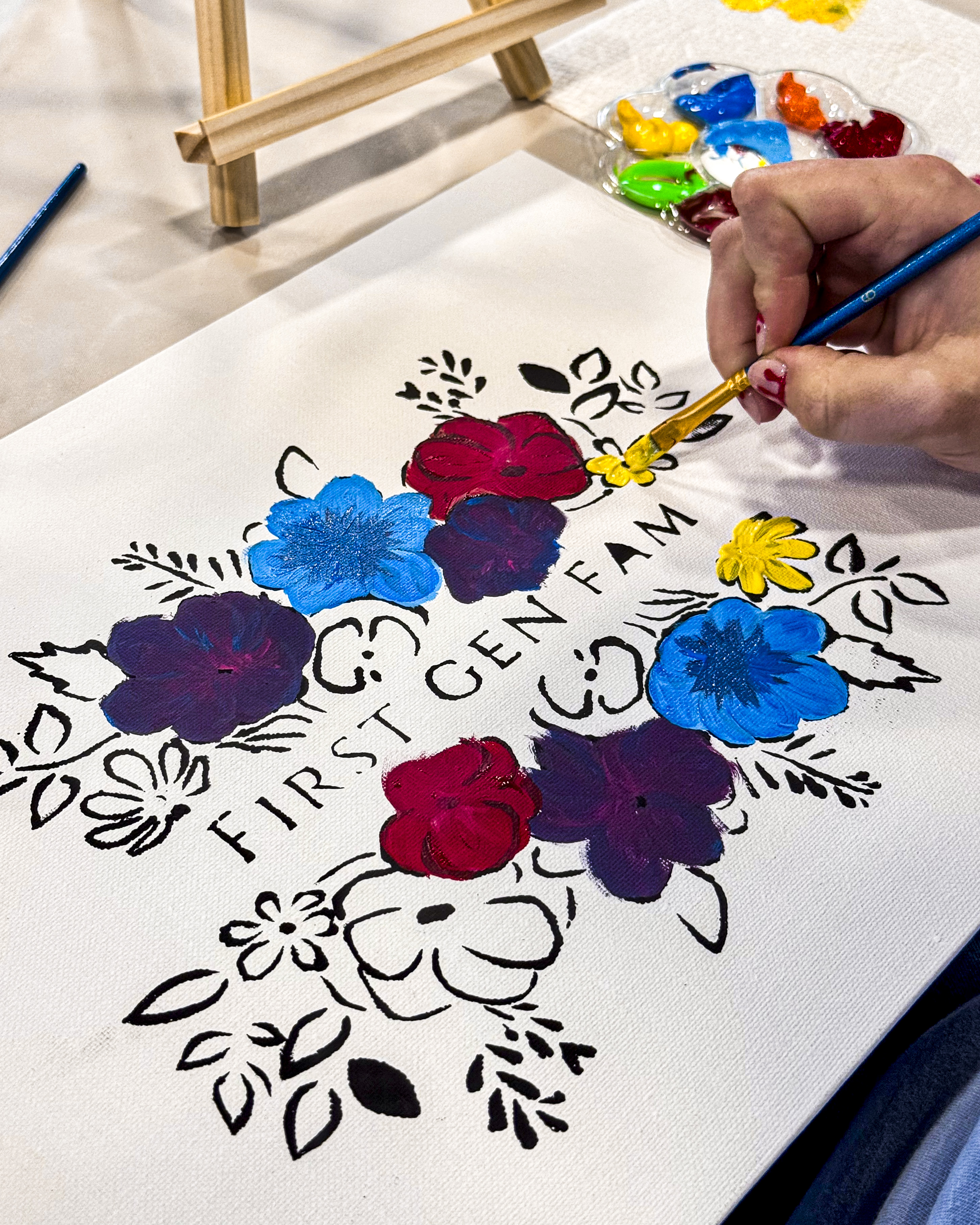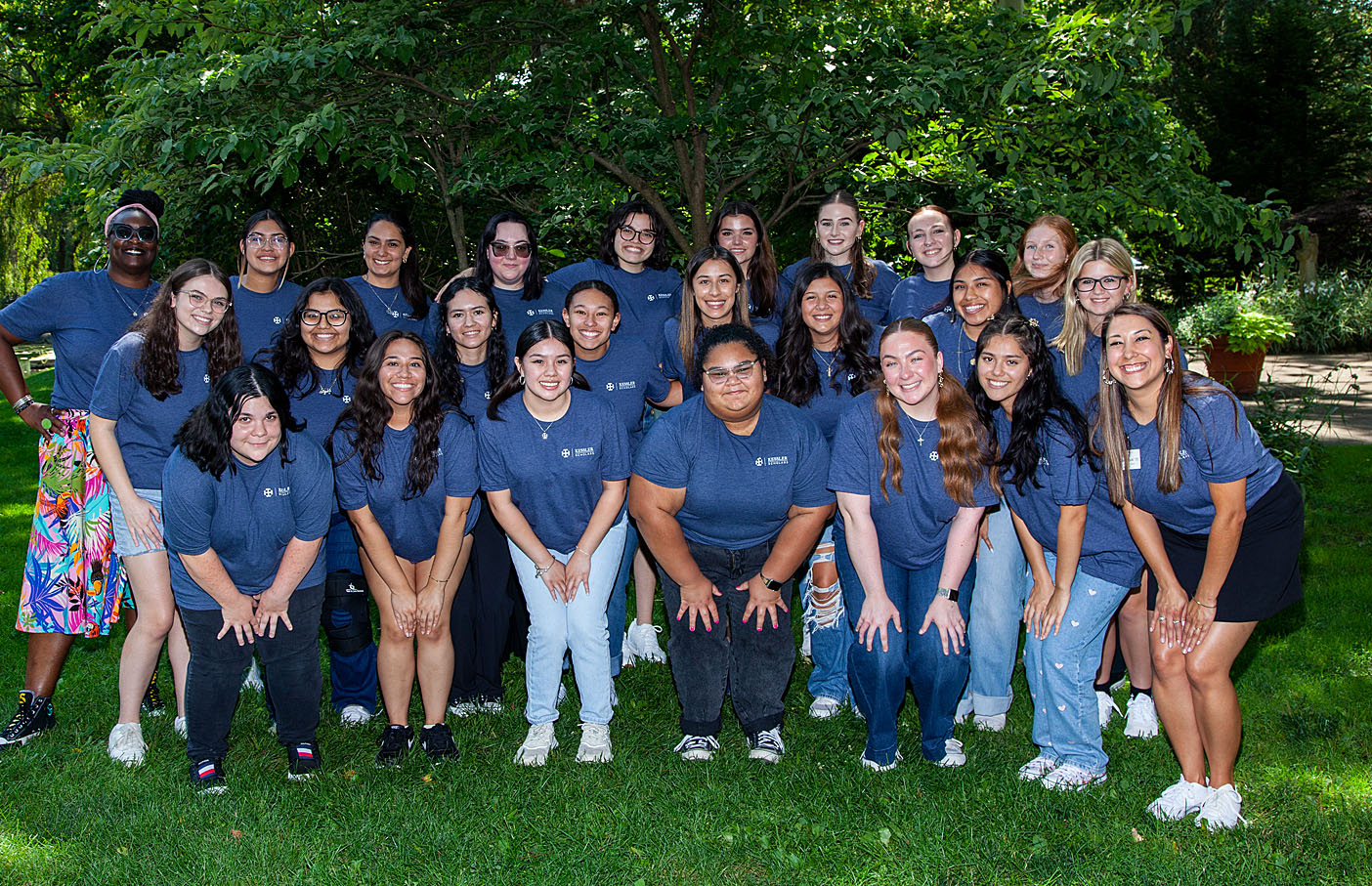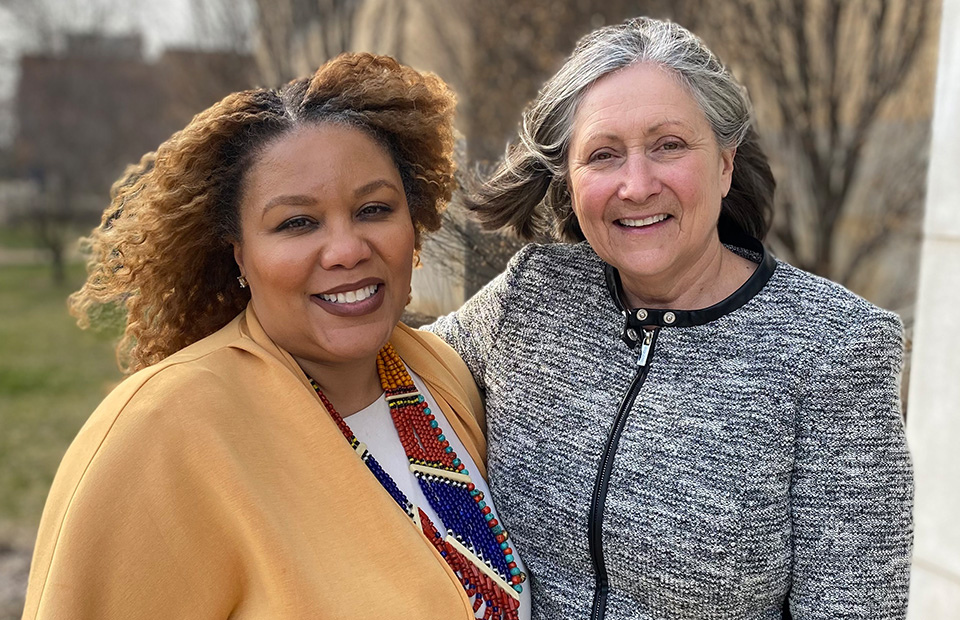First-Generation Students Help Others
Saint Mary's Stories
Students help create video series for future students
In the US, more than half of undergraduates are considered first generation: students whose parents or guardians do not have a bachelor’s degree. At Saint Mary’s, nearly a third of the Class of 2027 is considered first generation. As the first-year, first-gens arrived on campus last month, a group of established first-generation students—sophomores, juniors, and seniors—helped make sure this new cohort felt welcome and at home.
“You’ve Got This! Tips for First-Generation Students'' is a video series that includes practical advice on how they themselves adjusted to campus life, including navigating friendships and managing family expectations. Co-written by Alyson Aguilar Morales ’26 and narrated by Anaís Juliano ’25, Nathaly Gonzalez ’25 and Yazmin Reyes ’27, the video series showcases five of the biggest considerations first-gen students face.
“We know that high school graduates whose parents or guardians didn't attend college are less likely to go,” said Christin Kloski ’15, director of the Office for Student Equity, one of many on-campus resources for first-generation students. “And when they do enroll, we want to anticipate any barriers toward success that first-gen students face. Our office tries to encourage and cultivate meaningful programming and resources to remove those barriers.”
At Saint Mary’s, Kloski and her team help remove those barriers through programming, clubs, and activities. For example, the extracurricular Adulting 101 series helps all students navigate the nuances of adult responsibilities, showing the students the basics of budgeting, prioritizing their time, and understanding investments. “When students—especially first-generation students—understand that others here are experiencing the same things, it helps form a bond. We expect that as these bonds grow stronger, our students have a much greater chance of reaching their graduation day.”
The “You’ve Got This!” series is another way first-generation students can see themselves succeeding.
“The students in these videos are real. They are Saint Mary’s students who were themselves nervous first-years experiencing college as the first in their families. They speak with authenticity and confidence that the process works.”
You’ve Got This! Tips for First-Generation Students
While every new student can benefit from the tips found in the series, Kloski says the videos speak specifically to first-generation scholars. Here is a breakdown of what you’ll find:
Tip # 1: Don’t Let Impostor Syndrome Bring You Down
Imposter syndrome is a common experience among college students—especially for those who are the first in their family to pursue higher ed. It can make you doubt your abilities and maybe feel like a fraud. Many students feel the same way. You are going to college because you earned it, and you belong.
Tip #2: Utilize Spaces, Resources, and Connections
College is not just about attending classes, so get to know your campus, beyond the classrooms. Explore the Library to find quiet study spaces. Check out the student center to grab a coffee or a quick bite. Watch for open houses, activities fairs, tours, and other chances to learn what the college has to offer. By getting to know the campus and its services, it’ll no longer be intimidating.
Tip # 3: Navigating College Finances
Planning for college can be overwhelming, especially when it comes to personal finances and navigating financial aid. We like to reassure students that every college student, whether they are a first-year or a senior, will face anxiety at some point about money. Know there will be some bumps in the road, where you might not make the smartest financial decision. Don’t beat yourself up, and don’t be afraid to ask for guidance. Your college will have many resources for help along the way.
Tip # 4: Family Expectations
Understanding each other's expectations will help build a strong foundation of support. Families may have limited knowledge about the college experience, so share information about your academic environment. Describe it to them: your classes, campus resources, the clubs available at the college. Your loved ones will be learning right alongside you.
Tip # 5: Personal Care
College can be a demanding time, so it’s crucial to prioritize self care and relaxation. The best self-care you can do in these first few weeks is to be patient with yourself when you feel overwhelmed. College life comes with increased independence and responsibility. Effectively managing how you spend that time is a learning experience.
September 8, 2023



